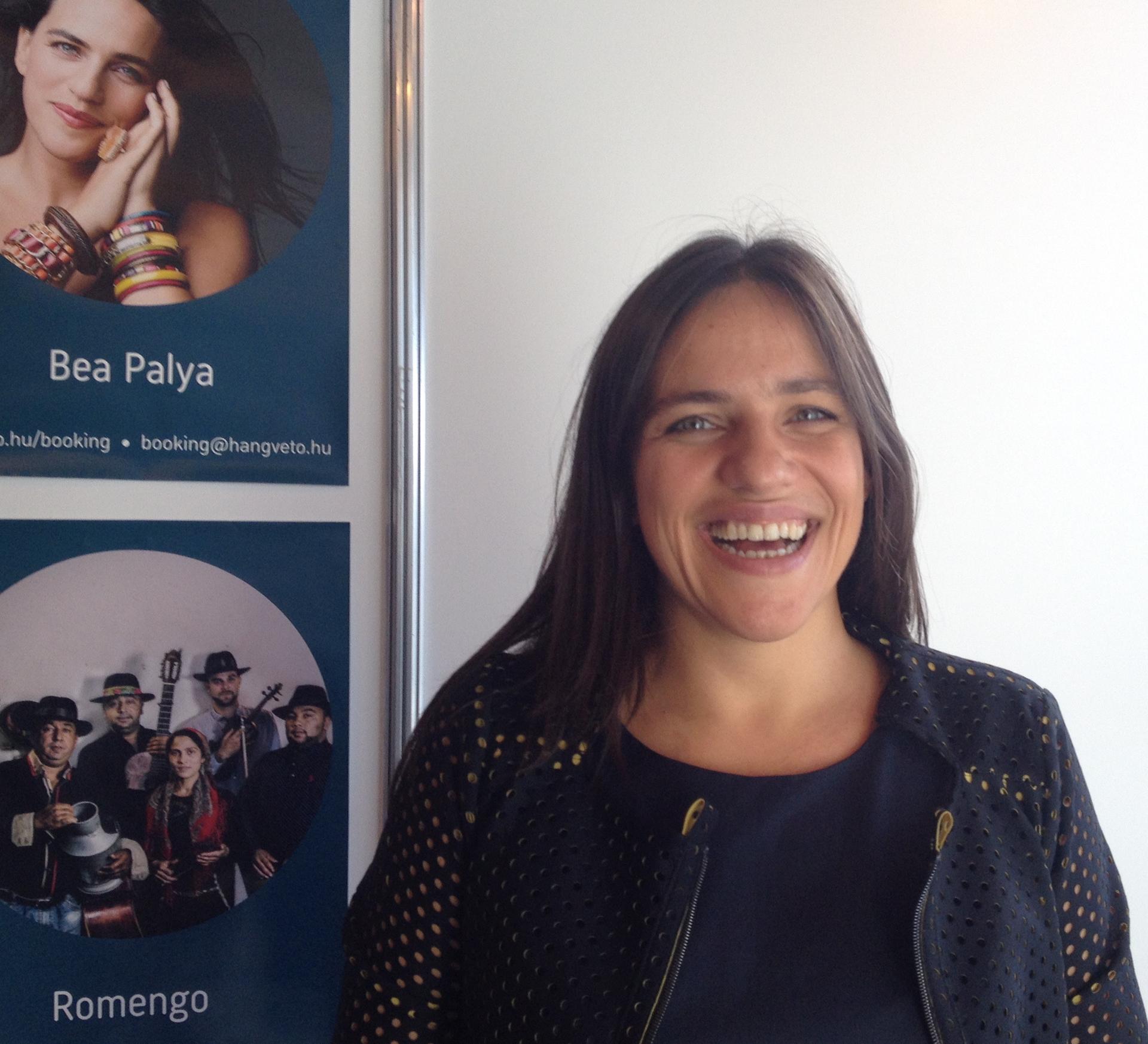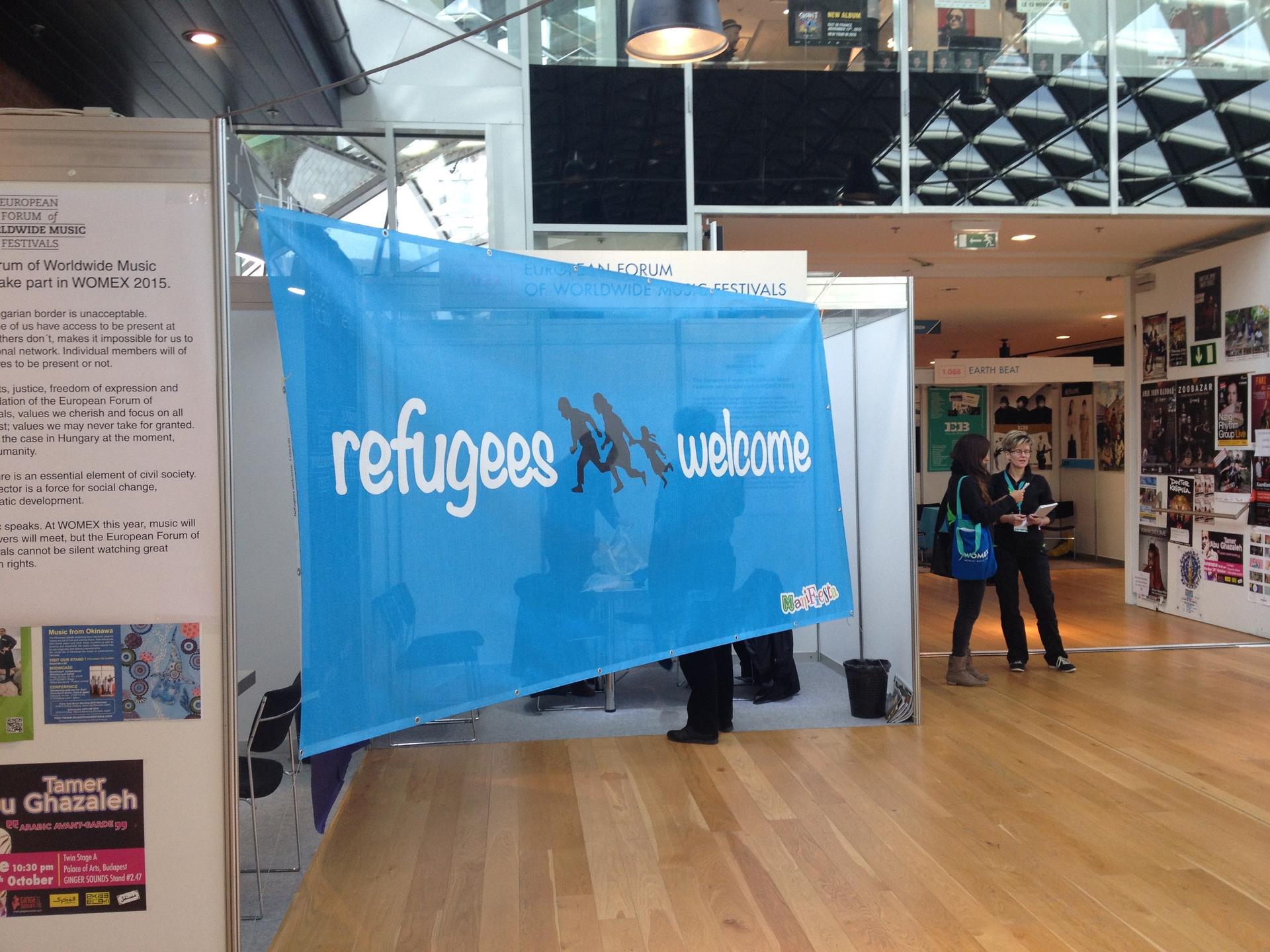Banner at this year's WOMEX being held in Budapest
I'm here in Budapest to attend the World Music Expo or WOMEX. This is a festival that attracts thousands of people from across the global music industry and this year is no exception. Over 2,500 attendees are here and at least 50 countries are represented.
Now what's made this festival different from previous ones I've attended (in both Seville and Copenhagen) is that this is the first time it's being held in an Eastern European city and in a country that in recent weeks has closed its borders to refugees and economic migrants. So it's somewhat ironic that a festival that fosters breaking down walls and differences through music is being held in a country whose borders are closed.
The controversy started about a month ago. On social media some attendees were calling for a boycott. They were asking "why should I come and give my money to the Hungarian government?" There was a lot of pushback and officials at WOMEX released a strongly worded statement that said in part "migration has contributed to the development of musical diversity around the world."
Hungarian singer-songwriter, Bea Palya, performed on opening night. She told me she understood why there was a call for a boycott, but went on to say "I think that generalization is always a line that we have to go under. If you say Hungary is like this, Hungary is 10 million people not every one thinks the same thing. So, I’m very happy that finally this is happening.”

In addition to being a musician, Palya is also an activist by way of music.
She doesn't shy away from writing about controversial subjects like abortion or sexuality. And a month ago at the refugee crisis here in Hungary, she gave a pop-up concert to refugees at a transit zone outside Budapest.
"The most honest thing is to go there, to see the eyes of these refugees and just make music and let’s connect," she says. "And it worked from the first moment. First they started to dance and then they want the instrument, so they show their rhythm. And I asked one man, 'where are the women?' And slowly, song by song I saw appearing the women, so it was a really a heart-touching moment."
Another artist performing here is Aziza Brahim from Western Sahara and Spain. If there was to be a poster musician then Brahim would be that person. She was born and raised in a Saharawi refugee camp in Algeria. Her family settled there in 1975. Brahim was born a year later.
On stage at WOMEX, she didn't mention her background. She wanted to speak through her music.
oembed://https%3A//www.youtube.com/watch%3Fv%3DKve1cVAZfpA
It's moments like this that no matter it's a performance at a transit zone or on stage at WOMEX, this is what music is all about. It's bringing people together from all corners of the globe, singing and dancing in one voice.
